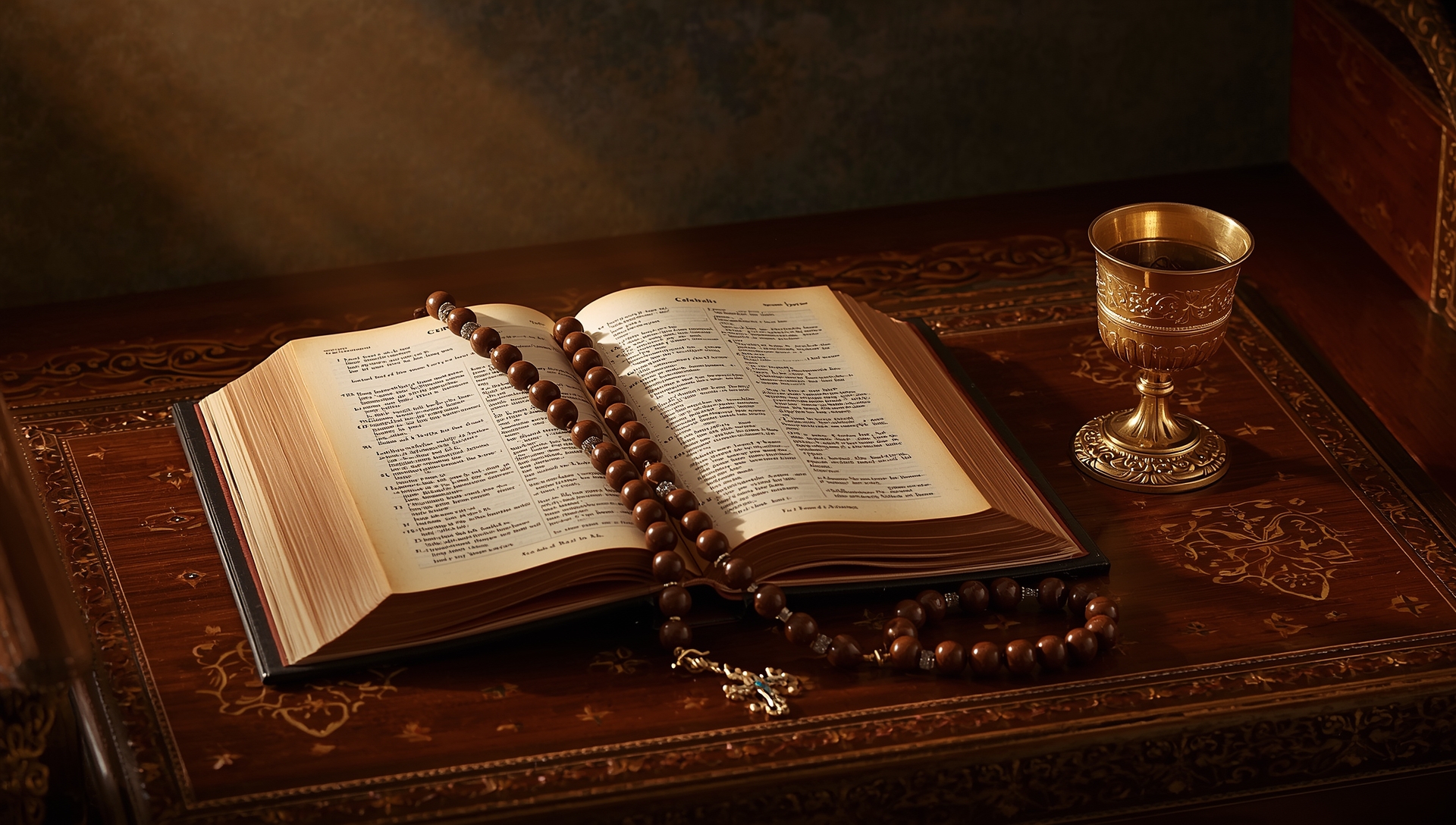Sacraments vs. Sacramentals: Understanding Their Distinct Roles in Catholic Faith
Holy Highlights
Archives
Sacraments vs. Sacramentals: Understanding Their Distinct Roles in Catholic Faith
SIGN UP FOR OUR NEWSLETTER
Sacraments vs. Sacramentals Essential Distinctions Every Catholic Should Understand |
Clarifying the Roles of Sacraments and Sacramentals in Catholic Faith |
In the rich tapestry of Catholic tradition, believers encounter numerous sacred signs that elevate their hearts and minds toward God.
Among these, two terms often lead to confusion: Sacraments and Sacramentals.
While they may sound similar, their roles and origins within the Church are distinct.
The Sacraments: Divine Channels of Grace
The Sacraments are seven sacred rites instituted directly by Jesus Christ, serving as primary conduits of divine grace.
These include:
1. Baptism 2. Confirmation 3. Eucharist 4. Penance (Confession) 5. Anointing of the Sick 6. Holy Orders 7. Matrimony
Through these Sacraments, God acts visibly to impart His saving grace.
For instance:
In Baptism, water cleanses individuals of original sin, initiating them as children of God.
During the Eucharist, believers receive the Body and Blood of Christ, nourishing their spiritual lives.
In Confession, sins are absolved through the priest's words, reflecting Christ's mercy.
These Sacraments are not mere human traditions or symbolic acts; they were established by Christ and are essential for salvation.
Each Sacrament confers grace by its very action (ex opere operato), as it is Christ Himself who operates within them.
Crave clear, trustworthy teaching without the noise?
Sacramentals: Sacred Signs Instituted by the Church
In contrast, Sacramentals are sacred signs instituted by the Church to prepare believers to receive grace and to sanctify different aspects of life.
Examples include:
- The Sign of the Cross - Holy Water - Blessed objects like candles, rosaries, and medals - Scapulars - Prayers such as blessings and exorcisms
Sacramentals do not confer grace in the same manner as Sacraments.
Instead, they dispose individuals to receive God's grace more fruitfully and turn their hearts toward Him.
Their efficacy relies on the faith and devotion of the user, as well as the prayers of the Church.
They serve as reminders of God's presence, offer protection from evil, and inspire holiness.
Scripture provides glimpses of sacramental-like actions:
The use of holy water recalls purification rituals, such as in Numbers 5:17.
The Sign of the Cross echoes the protective mark in Ezekiel 9:4.
The healing of the woman who touched Jesus' garment (Mark 5:27–29) illustrates how material things can be conduits of God's power when faith is present.
Bringing It Together
In summary:
- Sacraments are instituted by Christ, essential for salvation, and directly confer grace.
- Sacramentals are instituted by the Church, prepare believers to receive grace, and sanctify various aspects of daily life.
Both are expressions of God's love.
The Sacraments fortify believers with saving grace, while Sacramentals envelop daily life with reminders of God's presence, guiding them to live as children of the Kingdom.
When using holy water, wearing a scapular, or lighting a blessed candle, believers are not engaging in superstition.
They are embracing the aids provided by the Church to draw closer to Christ.
Let us cherish both the Sacraments and the Sacramentals, allowing them to sanctify our lives and deepen our participation in God's saving mystery.
“So whether you eat or drink, or whatever you do, do all to the glory of God.” (1 Corinthians 10:31)
Recent Local Events Highlighting Sacramental Celebrations
In July 2024, the 10th National Eucharistic Congress was held in Indianapolis, drawing approximately 50,000 Catholics from across the nation.
This significant event aimed to deepen understanding and devotion to the Eucharist, the source and summit of Catholic life.
Participants engaged in various liturgies, dynamic speakers, and faith-filled experiences, emphasizing the centrality of the Eucharist in the life of the Church.
Additionally, in May 2024, St. Mary of the Knobs Catholic Church in Floyds Knobs, Indiana, celebrated the 60th anniversary of Fr. John Geis's ordination.
The celebration included a special Mass and community gathering, honoring Fr. Geis's decades of sacramental ministry and dedication to the parish community.
These events underscore the ongoing importance and vitality of Sacraments in the local Catholic community, serving as milestones that strengthen faith and communal bonds.
Keep growing in clarity and certainty about the Faith one concise issue each week. |

